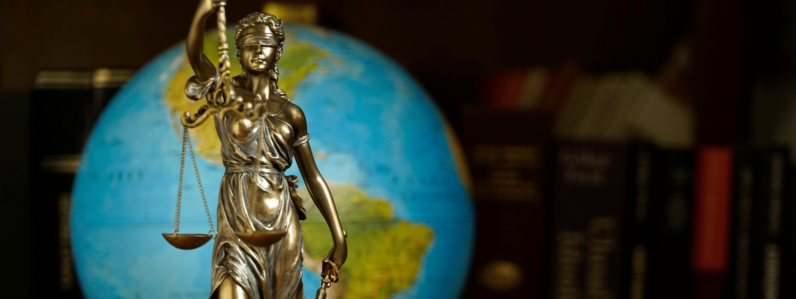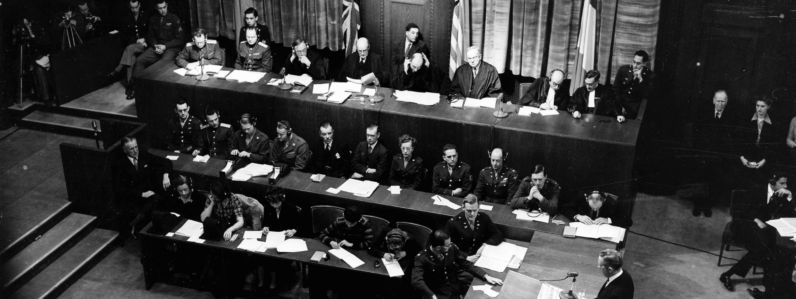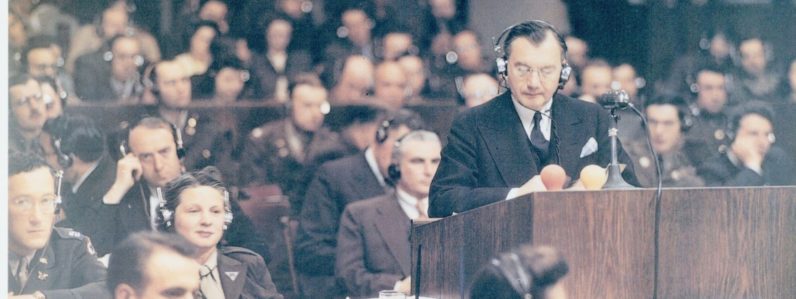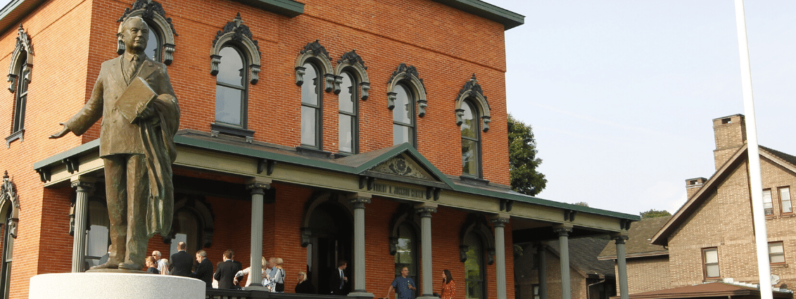The seventh annual International Humanitarian Law Dialogs is an historic gathering of renowned international prosecutors from Nuremberg, The International Criminal Court, The International Criminal Tribunals for the former Yugoslavia and Rwanda, The Special Court for Sierra Leone, The Extraordinary Chambers in the Courts of Cambodia and the Special Tribunal for Lebanon. The Prosecutors will be joined by leading professionals in the field of International Humanitarian Law. The 2013 installation of the Dialogs, which will be held August 25-27 at the Chautauqua Institution, offers a look at the impact of modern international law on war crimes and crimes against humanity, focusing on the theme, “The Long Hot Summer After The Arab Spring: Accountability and the Rule of Law.” The sessions are free (with the exception of meals) and open to the public. For more information, call the Robert H. Jackson Center at (716) 483-6646.
Highlights of the Dialogs include updates from the current prosecutors, a panel discussion on the Legal/Policy Issues Stemming from the Arab Spring, “Porch-Sessions with the Prosecutors” featuring a variety of focused topics relating to the Arab Spring, and the issuance of the seventh Chautauqua Declaration by all the Prosecutors in attendance. In addition, there will be a special film presentation of “Dictator in the Dock” at 2:00 pm on Sunday, August 25 at the Chautauqua Cinema. Tickets are available for purchase directly from the theater.
Filmgoers will be immersed in the high drama of the courtroom as they view the entire genocide trial of General Efraín Ríos Montt, a Guatemalan dictator and military commander. As the trial unfolds, it reveals much more than the General’s personal responsibility for the atrocities he ordered against the Ixil Maya people of Guatemala during his dictatorship; it questioned the very legitimacy of the power granted the country’s ruling elite.
Justice Robert H. Jackson was United States Chief Prosecutor of the principal Nazi war criminals at the International Military Tribunal in Nuremberg, Germany, during 1945-46. The Dialogs honor the legacy of Nuremberg as the first successful international effort to hold individuals criminally responsible for planning and waging aggressive war, committing war crimes and committing crimes against humanity. It founded the era of International Criminal Law and set standards that guide international prosecutors today. This event is made possible through the generous support of the following sponsors: The Robert H. Jackson Center, The American Red Cross, The American Bar Association, The American Society of International Law, Case Western University School of Law, The Chautauqua Institution, The Enough Project, New York University, The Planethood Foundation, Clayton Sweeney, Syracuse University College of Law, Washington University in St. Louis School of Law, in association with the United States Holocaust Memorial Museum.






